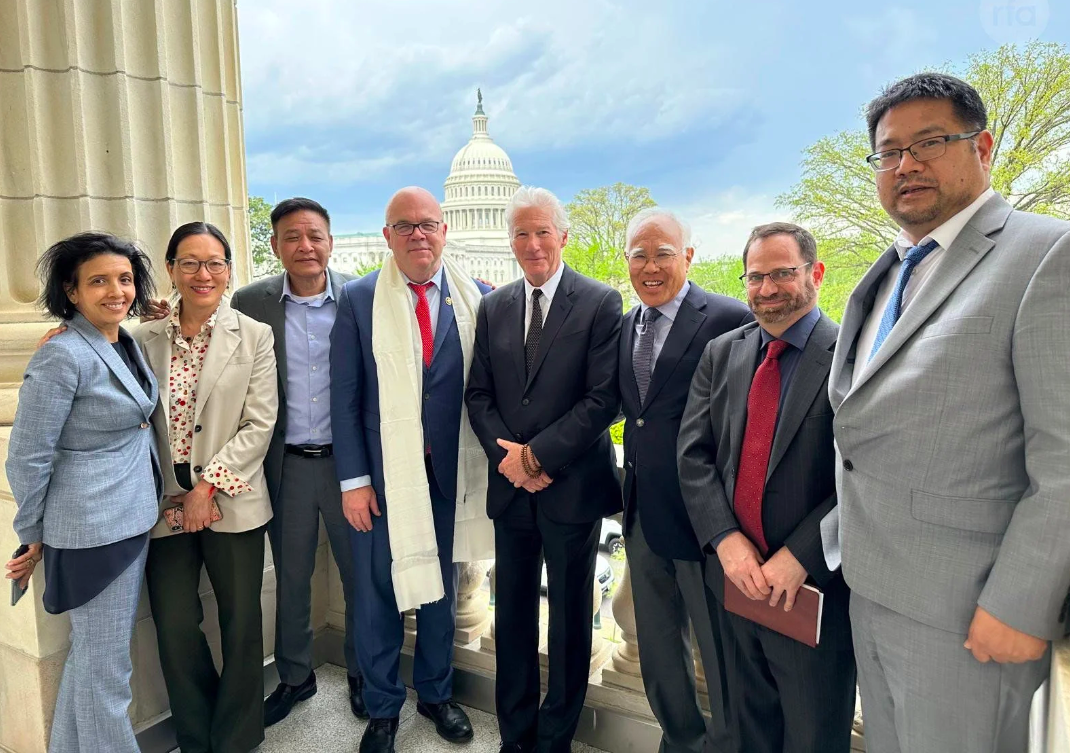By Tsering Dhundup
DHARAMSHALA, April 17: The bipartisan “Promoting a Resolution to the Tibet-China Dispute Act” S.138 was approved at the United States Senate Foreign Relations Committee’s business meeting on the morning of April 16, 2024.
The bill, aimed at strengthening US efforts to engage China in negotiations with Tibetan leaders and combatting disinformation about Tibet, has cleared a significant hurdle and is set to move to the Senate floor. If the resolution clears the floor test in the Senate, then the US President will sign the resolution and it will become a law.
During the bill’s introduction at the SFRC, Senator Merkley stated, “The People’s Republic of China continues to ignore the basic rights of the Tibetan people, and the status quo is not tenable. The Promoting a Resolution to the Tibet-China Dispute Act sends a straightforward message to the Chinese government: stop spreading disinformation about Tibet and its history and enter sincere negotiations over Tibet’s status. We must get this bipartisan bill over the finish line because the people of Tibet deserve a say in how they are governed.”
Fellow Senator Todd Young urged, “The Chinese Communist Party’s aggression towards Tibet is self-serving, with negotiations and even the very definition of Tibet on the CCP’s terms. We must refresh U.S. policy towards Tibet, and push for negotiations that advance freedoms for the Tibetan people and a peaceful resolution to the CCP’s conflict with the Dalai Lama. I am pleased by today’s vote, and I urge the full Senate to pass this bipartisan legislation and demonstrate America’s resolve that the CCP’s status quo – both in Tibet and elsewhere – is not acceptable”.
This development coincides with the visit of Penpa Tsering, the President or Sikyong of the Tibetan government in exile, to the US capital Washington, DC, where he is engaging in discussions with administration officials and members of Congress to advocate for the bill’s passage.
Introduced by Representatives Jim McGovern, D-Mass., and Michael McCaul, R-Texas, along with Senators Jeff Merkley, D-Ore., and Todd Young, R-Ind., the bill, also known as the Resolve Tibet Act, passed in the House of Representatives on February 15.
The bill reaffirms US policy that the Tibet-China dispute should be resolved peacefully through dialogue, in accordance with international law. It highlights China’s reluctance to engage in meaningful negotiations since 2010 and challenges the Chinese government’s historical narrative regarding Tibet’s status.
The Resolve Tibet Act also outlines several actions for the US government, including promotion of dialogue between Chinese and Tibetan leaders, coordinating multilateral efforts, and advocating the preservation of Tibetan cultural and religious identity. Additionally, it emphasizes the importance of countering Chinese disinformation about Tibet through public diplomacy efforts and empowering the State Department’s special coordinator for Tibetan issues.
Despite China’s insistence on a limited definition of Tibet, confined to the so-called Tibet Autonomous Region, this legislation makes clear that Tibet also includes Tibetan regions of Gansu, Qinghai, Sichuan and Yunnan provinces that includes the remaining territory of traditional Tibet (Kham and Amdo). The bill also aims to counter the narrative propagated by the Chinese government, which asserts that Tibet has been an integral part of China since ancient times.
The dialogue between Beijing and representatives of the Dalai Lama began with fact-finding Tibetan delegations visiting Tibet in 1979 and 1980, followed by exploratory talks in Beijing in 1982 and 1984. From 2002 onwards, nine rounds of discussions took place between envoys of His Holiness the Dalai Lama and China’s United Front Work Department.
Throughout these talks, the Tibetan delegation advocated for genuine autonomy for Tibet by Chinese constitutional principles and the Law on Regional National Autonomy, culminating in the presentation of a Memorandum and Note to the Chinese leadership. However, the ninth and final round of talks occurred in 2010 and 2012, the Dalai Lama’s envoys resigned after the ninth round, citing the deteriorating situation in Tibet and a perceived lack of sincerity and willingness from the Chinese side.










